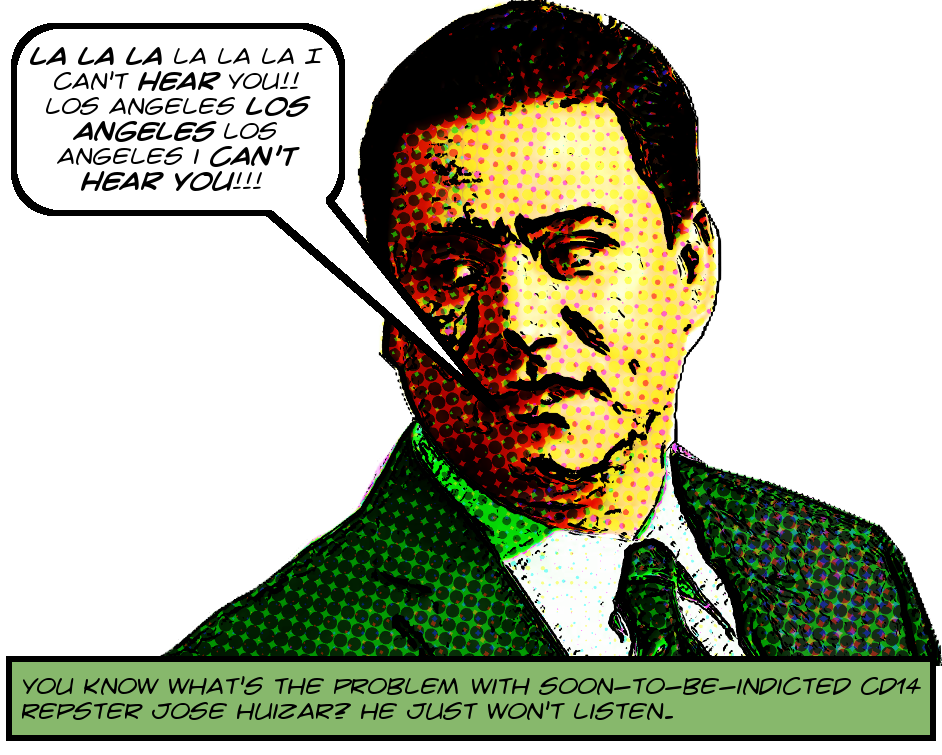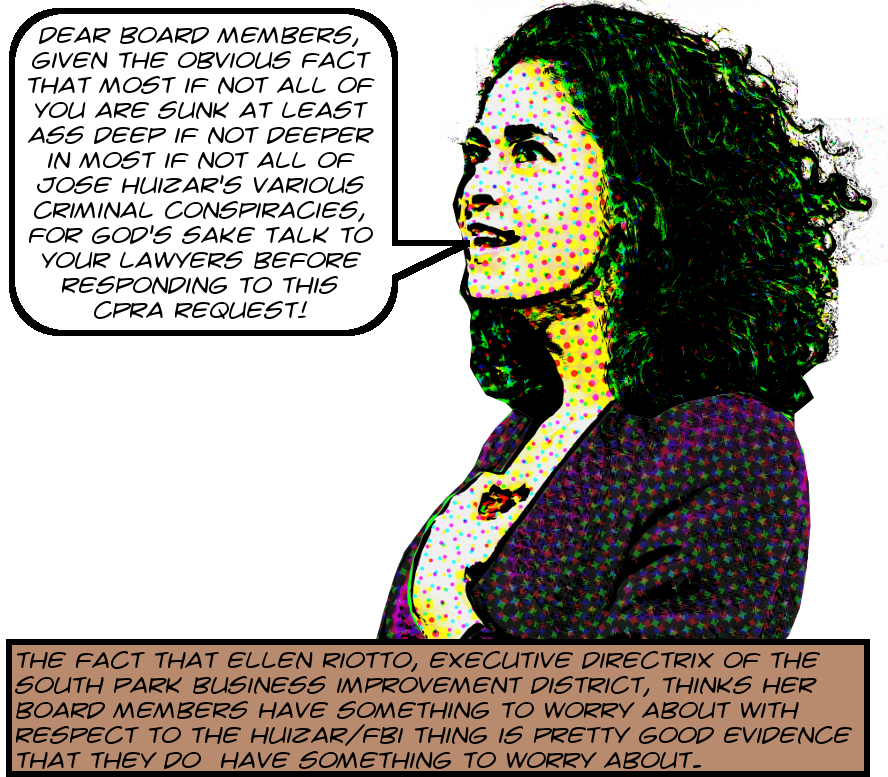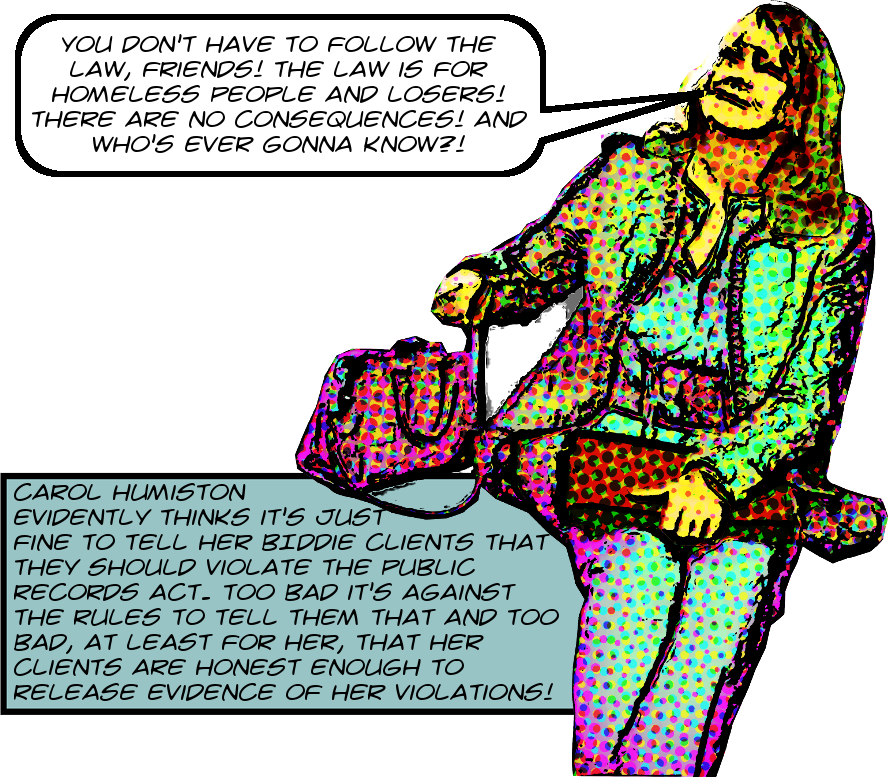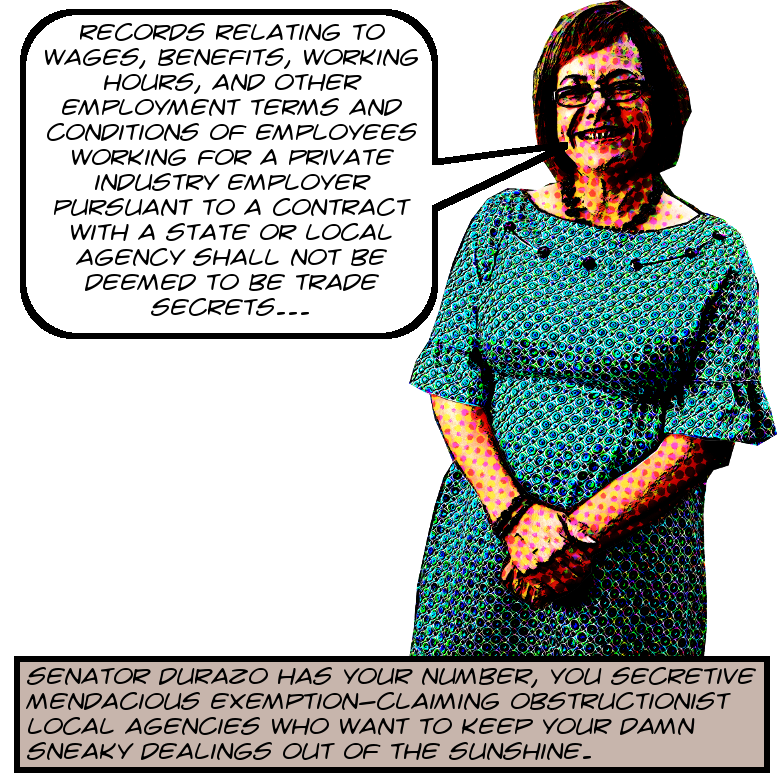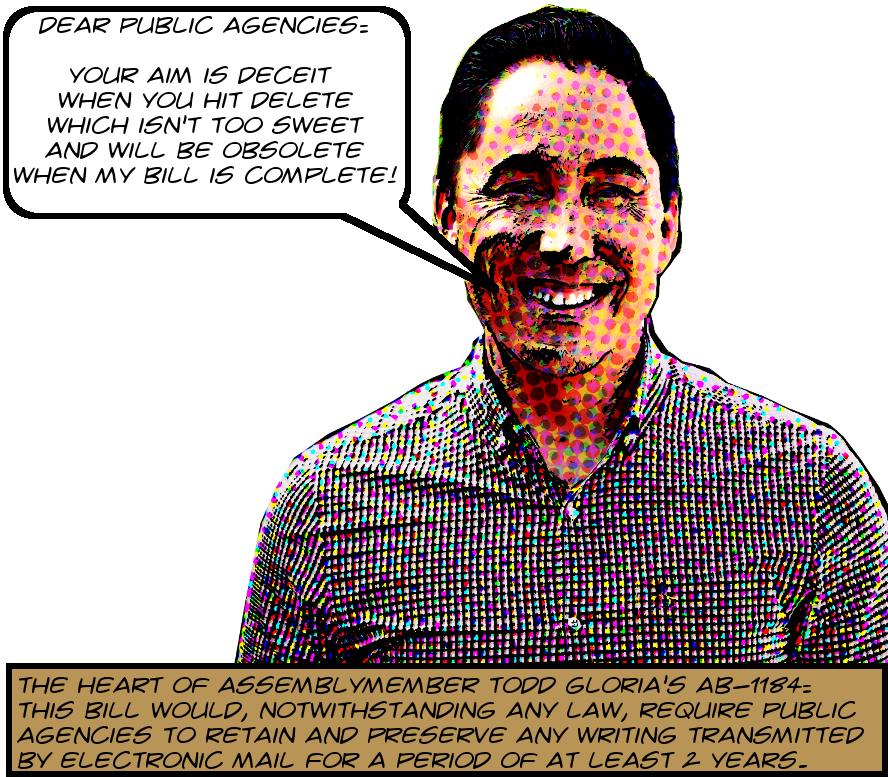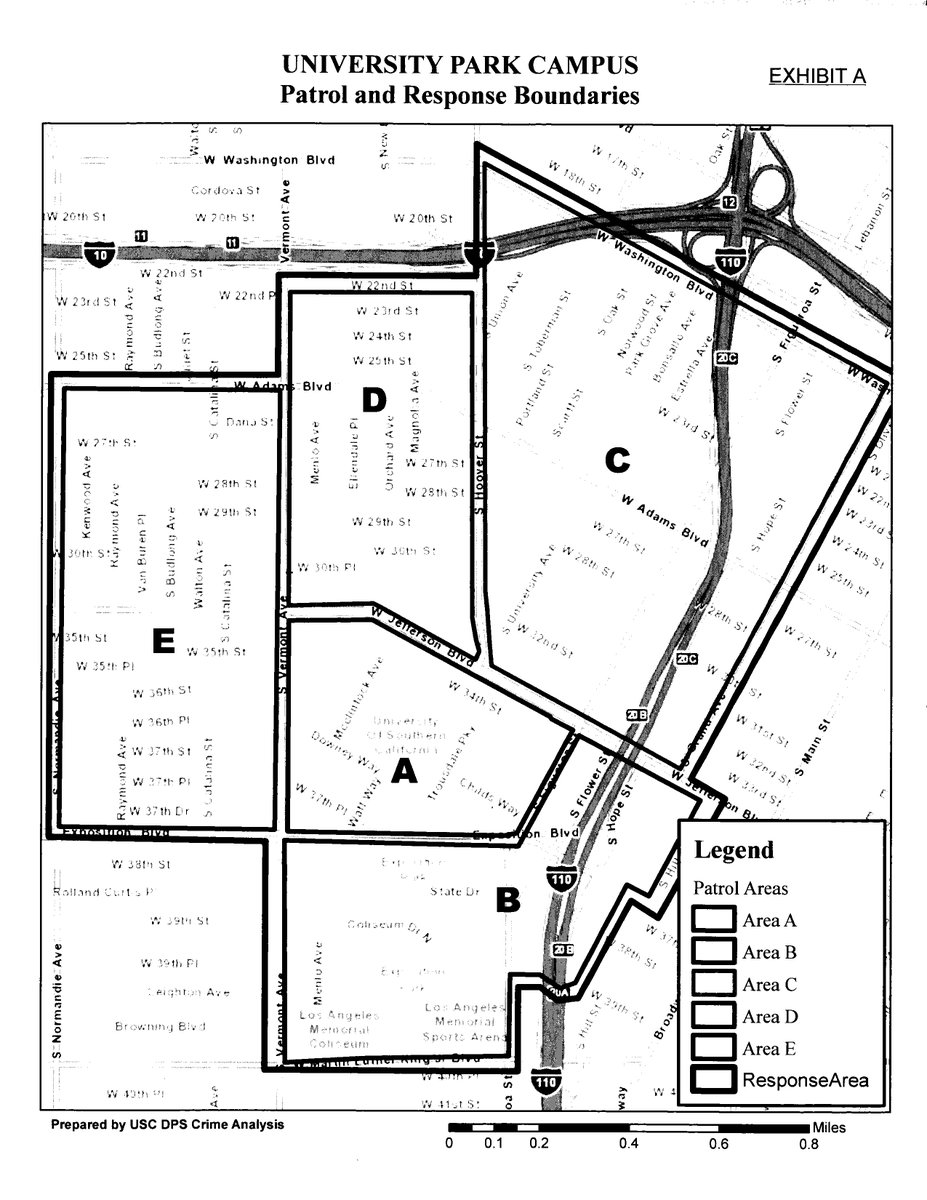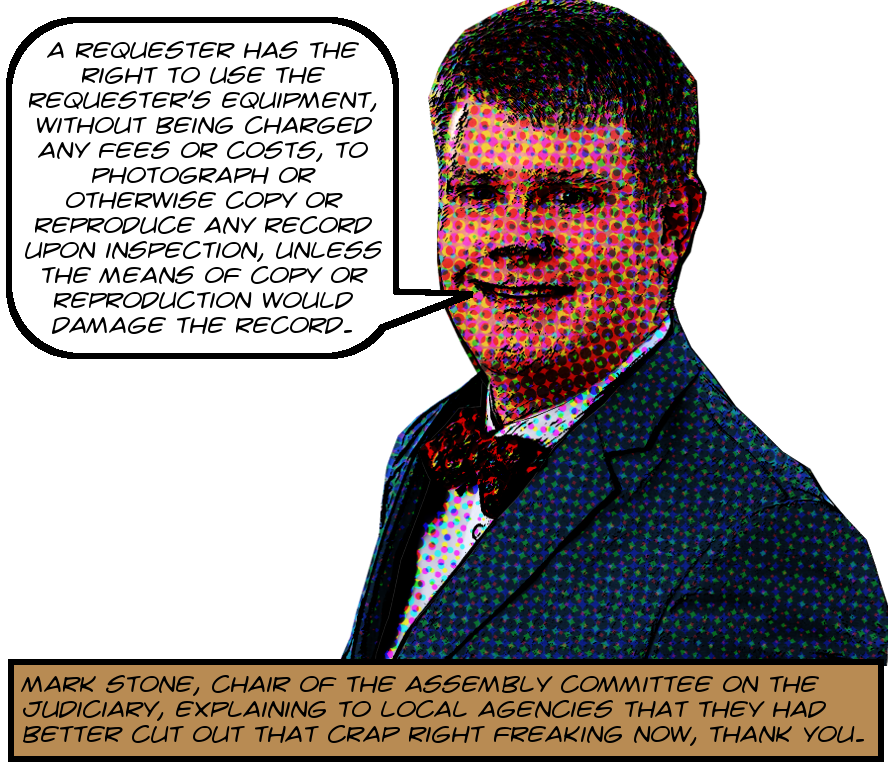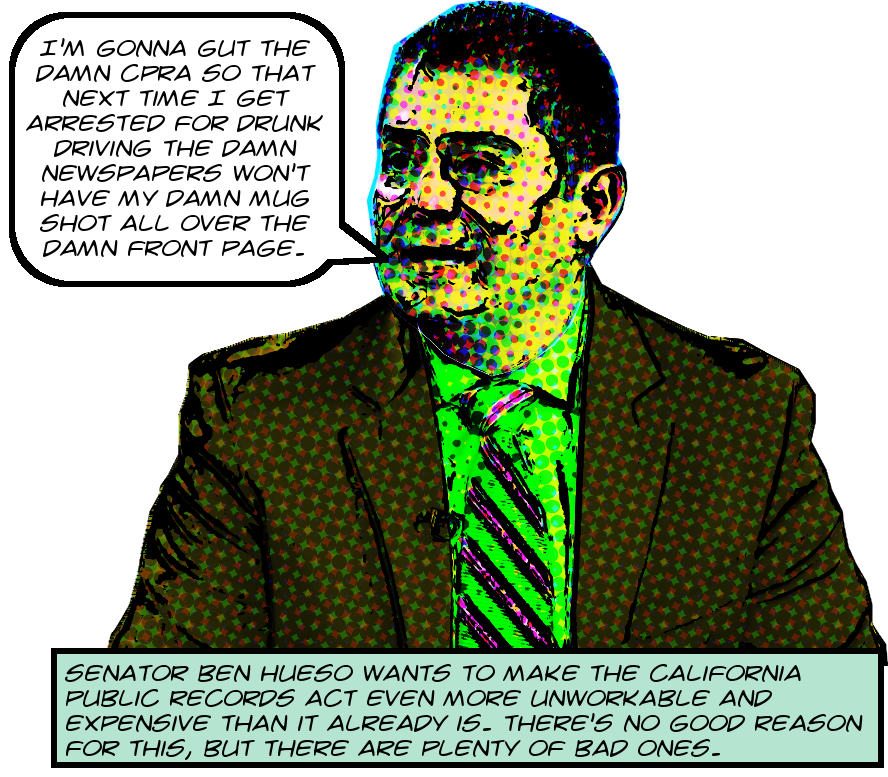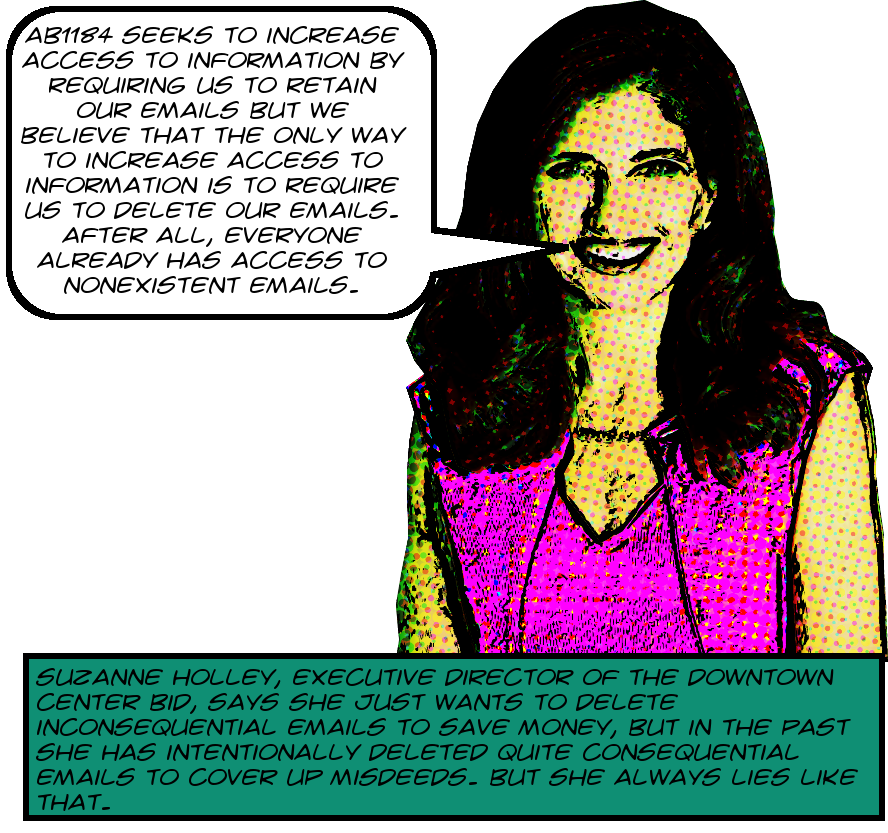 Assemblymember Todd Gloria introduced AB 1184, which would clarify an ambiguity in state law by requiring public agencies to retain emails for a minimum of two years. You can read my earlier article on it here. Well, on Wednesday the bill was amended1 and passed out of the Senate Judiciary Committee with a 10 to 1 tally in favor.2 It’s really worth reading the Judiciary Committee Counsel’s analysis of the bill, by the way.
Assemblymember Todd Gloria introduced AB 1184, which would clarify an ambiguity in state law by requiring public agencies to retain emails for a minimum of two years. You can read my earlier article on it here. Well, on Wednesday the bill was amended1 and passed out of the Senate Judiciary Committee with a 10 to 1 tally in favor.2 It’s really worth reading the Judiciary Committee Counsel’s analysis of the bill, by the way.
And I also have copies of support and opposition letters. Powerful support comes from the California News Publishers Association and the First Amendment Coalition. Here are their letters:
☆ California News Publishers Association support for AB1184
☆ First Amendment Coalition support for AB1184
The opposition letters are predictably stupid, self-serving, and dishonest. They mostly take the position that it will cost too damn much to store two years worth of emails. Obviously, though, none of them provide any evidence because it’s just not true.3 Here are the links:
☆ City of San Carlos opposition to AB1184
☆ City of West Hollywood opposition to AB1184
☆ Various BIDdie Associations opposition to AB1184
☆ Downtown Center BID opposition to AB1184
And, probably unsurprisingly, this last one, penned by Downtown Center BID executive director Suzanne Holley, already known to be one of the most mendacious of an exceedingly mendacious crew of Los Angeles BIDdies, is perhaps the most twisted, the most dishonest, and the most ineffective, it turns out, out of all of them. There is a transcription after the break, but behold a few highlights with commentary and counterpoint.
Suzanne, why is your BID opposed to this? “Agencies would be forced to maintain an onerous amount of data.” And why is this not in the public interest, Suzanne? “the public would need to sort through thousands of emails to find the relevant needle in the haystack.” Suzanne! See that little box in your email client with a magnifying glass in it? If you put words in there and click on something the computer will sort through the emails for you! I use mine all the time!
Explain again, Suzanne! “Requiring the retention of tens of thousands of emails will bury relevant information…” And what is your answer to this imaginary problem, Suzanne? ” we believe the bill can be amended to ensure that the retention only apply to information relevant to the public business.” Of course, Suzanne, the problem is that on your scheme, YOU would be the one who decides what the public business is when obviously it’s the public that needs to decide.
And what kind of stuff would Suzanne delete if allowed? Here’s what she says doesn’t need to be retained: “Every email, regardless of how irrelevant would need to be retained. … Even an email asking a colleague out to lunch would fall under the purview of this bill.” See? Suzanne is asking the public to trust her to determine which emails it’s in the public interest to retain. She seems to be saying she’s just going to delete a lot of emails about lunch dates.
Leaving aside serious arguments that such emails may be very important indeed, let me tell you a little story about what kinds of emails Suzanne Holley actually does in fact delete. Remember all those emails I got in 2017 about BID involvement in the destruction of the Skid Row Neighborhood Council? That Jason McGahan, then of the LA Weekly, used in his blockbuster article? That are now evidence in the lawsuit against the City for illegally tampering with the subdivision election? Well, I got the first batch of those emails from Suzanne Holley at the Downtown Center BID.
Continue reading Business Improvement Districts And A Bunch Of Backwater Small Towns Oppose Assemblymember Todd Gloria’s AB1184 — Which Will Require Local Agencies To Retain Emails For Two Years — Read Their Letters Of Opposition And See What Shameless Liars They Are — Especially Suzanne Holley Of The Downtown Center BID — Who Argues With A Straight Face That Allowing Them To Delete Emails Will Increase Public Access To Information Because They Will Only Save The Important Stuff — By The Way Though I Have Proof That Holley’s BID Has Intentionally Deleted Very Important Emails In The Past — Icky Sticky BIDdie Boy Andrew Thomas Of Westwood Village BID Also Opposes — And He’s Also An Email Deleting Liar

